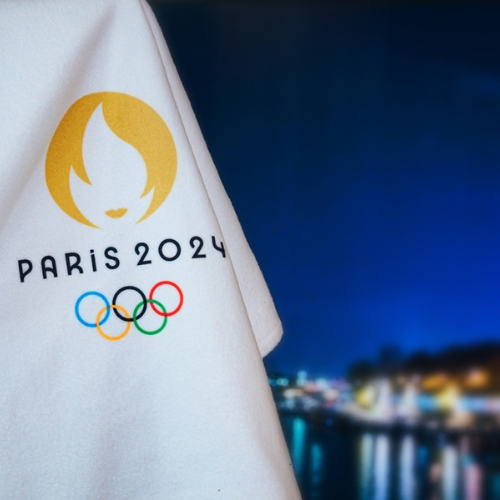With just three days remaining until the start of the 2024 Olympics , France’s Interior Minister announced that around 1,000 individuals suspected of potential espionage or foreign meddling have been barred from attending the Games. This move is part of a broader security effort aimed at ensuring the safety of athletes and spectators during the event.
Comprehensive Background Checks
To secure the Olympics, France has conducted extensive background checks on approximately 1 million individuals, including volunteers, workers, and others involved in the Games. These checks also extend to those applying for access to the highly restricted security zone along the Seine, where the opening ceremony will take place on Friday. The scrutiny has led to the exclusion of about 5,000 people, with 1,000 of them suspected of foreign interference, which the Interior Minister identified as potential espionage.
Targeting Foreign Interference
Interior Minister Gerald Darmanin highlighted concerns about foreign interference, particularly from Russia. He emphasized the importance of preventing the use of sports for espionage, cyberattacks, or propaganda against France. Darmanin noted that interference is not only a concern from Russia but also from other unnamed countries. He stressed the vigilance of French authorities in protecting the integrity of the Games and ensuring that foreign actors are aware of their scrutiny.
Addressing Broader Security Concerns
The individuals barred from the Olympics were also flagged for other reasons, including suspected Islamic radicalization, political extremism, significant criminal records, and various security concerns. Darmanin stated that these individuals were deemed unsuitable for roles such as stadium stewards or team accompaniments. He praised the thorough work of the Interior Ministry in identifying and excluding these risks, noting that out of 1 million people checked, only 5,000 were barred, reflecting the diligence of the security efforts.
Massive Security Deployment
To safeguard the Olympics, Paris is deploying 35,000 police officers daily, with numbers peaking at 45,000 for the opening ceremony. Additionally, 10,000 soldiers are participating in security operations across the Paris region. France is also receiving assistance from over 40 countries, contributing at least 1,900 police reinforcements.
Special attention is being given to protecting the Ukrainian team due to the heightened threat level. Israeli athletes will also receive 24-hour protection from elite police units, reflecting the serious security measures in place.
Preparing for Unprecedented Challenges
Darmanin commended the work of tens of thousands of security personnel, including police officers, firefighters, bomb disposal experts, intelligence agents, and private security staff. In a handwritten note, he acknowledged the significant challenges they face, especially given Paris’s history of extremist attacks and the current international tensions due to conflicts in Ukraine and Gaza.
Cybersecurity is also a major concern for Olympic organizers, while rights campaigners and critics are wary of the extensive use of AI-equipped surveillance technology. They fear that the broad scope of Olympic security measures may extend beyond the Games.
Hosting Events Across Paris
Unlike previous Olympic cities that built centralized Olympic parks, Paris has chosen to integrate many events within the bustling city center and its suburbs. This decision adds complexity to the security arrangements, as temporary sports arenas and the opening ceremony along the Seine require robust protection measures.
As Paris gears up for the 2024 Olympics, the emphasis on security and vigilance highlights the commitment to ensuring a safe and successful event for all participants and spectators.



